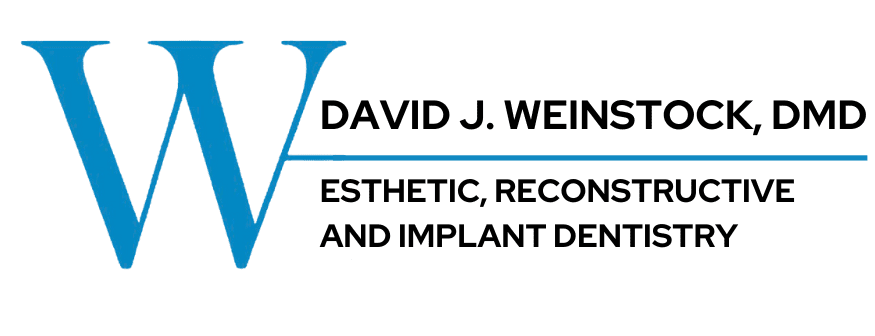Fear of the dentist is the number one reason patients give for avoiding the dentist. Millions of Americans ignore their dental health due to dental anxiety. Unfortunately, avoiding dental care can lead to more complex dental concerns.
Visiting the dentist twice a year can help avoid the need for advanced dental procedures. It keeps your teeth and gums healthy and allows the dentist to discover issues in the early stages when treatment is easier and less painful.
Sedation dentistry offers patients who fear the dentist a way to relax and stay calm during their visit to the dentist. Dr. Weinstock offers several sedation options so patients can receive the oral health care they need. This is one of the many dental services that Dr. Weinstock offers to his patients that suffer from dental anxiety.

Sedation Dentistry in Philadelphia, PA
There are many benefits to using sedation dentistry. Most importantly it allows our patients to achieve optimal oral health and then also maintain it. It is very important to take the health of your teeth and gums seriously because they affect so many aspects of your life. Sedation methods can keep you calm and in a state of relaxation during your appointment.
Not only will it put your anxiety at ease, but it also allows Dr. Weinstock to perform multiple treatments in one visit to our Philadelphia area dental practice. This means fewer trips to the dentist saving you time and money.
The added bonus to being sedated is how little you will remember of the procedures. For an appointment that lasts a few hours, it may actually feel like less than an hour to you. Although you will not be asleep, you will not be aware of what is going on for the most part. You will have no awareness of the sights, sounds, or smells that are typical for a dentist office.
Pain and anxiety-free procedures are now possible with the help of sedation dentistry.
Sedation Dentistry: What to Expect
To get started with sedation dentistry, be sure to mention to our staff or Dr. Weinstock that you want to learn more about our sedation options. We will discuss the benefits of each option and help you choose which one will work best for your needs.
Our staff is always willing to help answer any questions you may have about sedation dentistry or any procedure you may need. Our highly trained and compassionate team works hard to make you feel welcomed and safe in our Bala Cynwyd dentist office.
In addition to sedation, we also offer many amenities to help keep our patients anxiety-free and calm. We provide a comfortable dentist office environment with a relaxing atmosphere that includes:
- Dental chairs contoured to your body to help keep you relaxed and comfortable.
- Gentle, effective anesthetic techniques to lessen discomfort.
- Personal CD player with stereo headphones to soothe you and help you relax.
- Our friendly, attentive staff will help to make your visit with us a pleasant one.
Types of Dental Sedation
There are many types of dental sedation availiable to patients in our office. Continue reading to learn more about the types of dental sedation and which may be best for you and your needs.
Minimal sedation: Minimal sedation promotes relaxation while allowing patients to remain conscious and responsive. It is typically inhaled and provides slight sedation effects. Minimal sedation is commonly used to calm patients nerves who suffer from anxiety.
Moderate sedation: Inducing a deeper state of relaxation, often resulting in limited memory of the procedure. Patients may not be responsive, however they will be kept comfortable and pain free. This is typically used in more in depth procedure that may be more uncomfortable.
Deep sedation: Approaching a state of unconsciousness, with patients being easily awakened if necessary, however asleep for the majority of the procedure. When deep sedation is used we recommend arranging to have someone drive you home from your procedure as patients may feel tired and groggy for a few hours after.
General anesthesia: Rendering patients completely unconscious, typically reserved for complex procedures genera anesthesia is the deepest form of sedation offered in our office. Affects from genera anesthesia are long lasting, so we recommend arranging to have someone drive you to and from your porcedure, and look out for you for the first few hours after the procedure has ended.
Sedation Dentistry FAQs
Do you have further questions about dental sedation options? Continue reading to learn more and to find answers to frequently asked questions in our office.
Is sedation dentistry safe for all ages?
Yes! Dentists have been using dental sedation for many years to help with anxiety in patients of all ages. Younger patients with behavioral, medical, and developmental disorders can benefits from dental sedation. We will always evaluate you before dental sedation is used with your treatment.
How long does the sedative effect last?
The duration of sedation depends on the type of sedation used. Minimal sedation wears off relatively quickly, while deep sedation or general anesthesia may take longer to wear off. We will provide specific instructions regarding post-operative care and any limitations you may have after the procedure.
Who can benefit from sedation dentistry?
Sedation dentistry is beneficial for patients who experience dental anxiety or fear, have a low pain threshold, have sensitive teeth, have a strong gag reflex, require extensive dental work, or have difficulty sitting still for long periods. Sedation dentistry is used in a variety of dental procedures and can benefit many patients in different ways.
Are there any side effects or risks associated with sedation dentistry?
While sedation dentistry is generally safe, there can be some potential side effects and risks. These may include grogginess, dizziness, temporary memory loss, nausea, and headaches. However, these side effects are typically minimal and resolve quickly.
What can I expect after sedation dentistry?
You may feel groggy, sleepy, and dizzy after your treatments with dental sedation. Not all patients experience these symptoms, but they are common when you are coming out of being sedated. Symptoms may linger for a couple of hours depending on the type of sedation chosen.
Will dental sedation stop my gag reflex?
Yes. Some people suffer from a sensitive gag reflex. This is a huge issue when visiting the dentist requires hands and tools in your mouth. Being sedated will paralyze your gag reflex allowing your dentist to work faster and more efficiently.
